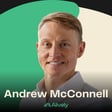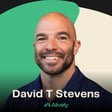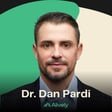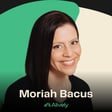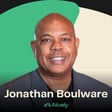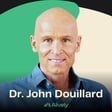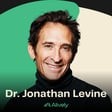
How Losing 80 Pounds of Weight Saved His Life with Ben Azadi - E57
If you’re overweight, imagine how losing a staggering 80 pounds could change your life.
Creating lasting health changes like that is tough, because we tend to focus on diet tweaks and quick fixes, while neglecting the deeper patterns driving our habits. The demands of daily life, nagging mental roadblocks, and the pressure of past failures can leave even the most well-intentioned among us feeling stuck.
This episode dives into why mindset is the key to true transformation, and how shifting your thinking can unlock consistent progress across nutrition, fitness, and wellbeing. Cutting through empty motivation and buzzwords, we explore building metabolic health from the inside out, and all from someone who learnt it all the hard way.
Ben Azadi is a keynote speaker and New York Times bestselling author of "Metabolic Freedom", recognized for his expertise in metabolic health and nutrition. After overcoming obesity and depression in his early 20s, Ben built his authority on transforming pain into purpose and now leads Keto Camp, an online coaching platform with over 120,0000 subscribers to achieve metabolic flexibility. He is also the host of a top 15 podcast, “Metabolic Freedom with Ben Azadi”. Ben's game-changing approach to health has made him a trusted resource for anyone seeking sustainable wellness.
“More important than the physical six pack that I achieved was, was the mental six pack and the suicidal thoughts, the depression, all of that just started to dissipate…” - Ben Azadi
In this episode you will learn:
- How Ben transformed his life from obesity, depression, and poor health through mindset shifts and taking personal responsibility.
- The concept of “mental obesity,” why mindset is foundational to any health transformation, and how self-image and identity shape lasting results.
- What metabolic flexibility means, why continuous ketosis is not recommended for most people, and the practical approaches Ben uses for cycling between fat and sugar burning.
- How Ben structures his nutrition, including periods of carnivore eating, high-carb refeeds, and how he uses continuous glucose monitoring to personalize his choices.
- The importance of prioritizing protein intake and strength training for preserving lean muscle during fat loss and supporting long-term health.
- Why foundational habits like sleep and social connection are as vital as diet and exercise, and how trade-offs for quality of life play a key role in sustainable healthspan.
Resources
- Connect with Ben on Instagram: https://www.instagram.com/thebenazadi
- Listen to Ben’s award-winning podcast, “Metabolic Freedom”: https://podcasts.apple.com/podcast/id1470779784?app=podcast&at=1000lHKX&ct=linktree_http&itscg=30200&itsct=lt_p&ls=1&mt=2
- Order Ben’s book, “Metabolic Freedom: A 30-Day Guide To Restore Your Metabolism, Health Hormones & Burn Fat”: https://ketokamp.clickfunnels.com/metabolic-freedom
This podcast was produced by the team at Zapods Podcast Agency:
https://www.zapods.com
Find the products, practices, and routines discussed on the Alively website:
https://alively.com/

